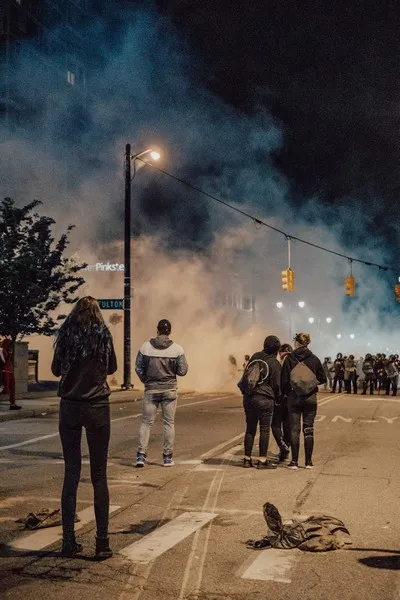Civil disobedience is a form of protest that involves the intentional violation of laws or rules in order to challenge unjust policies or bring attention to social issues. It is a powerful tool used by individuals and groups to express their discontent and demand change. In sociology, the causes of civil disobedience can be analyzed from various perspectives, including structural, cultural, and individual factors. This article will outline and explain some of the key causes of civil disobedience.
1. Injustice and Inequality
One of the primary causes of civil disobedience is the perception of injustice and inequality within society. When individuals or groups feel that their rights are being violated, or that certain groups are being marginalized or oppressed, they may resort to civil disobedience as a means to challenge the status quo. This can include protesting against discriminatory laws or policies, advocating for equal rights, or demanding social and economic justice.
2. Lack of Democratic Participation
Civil disobedience can also arise from a perceived lack of democratic participation. If individuals or groups feel that their voices are not being heard or that their concerns are being ignored by the government or other institutions, they may engage in acts of civil disobedience to demand greater inclusion and participation in decision-making processes. This can include sit-ins, strikes, or other forms of nonviolent resistance aimed at disrupting the normal functioning of society to draw attention to their demands.
3. Dissatisfaction with Legal and Political Systems
Another cause of civil disobedience is dissatisfaction with the legal and political systems. When individuals or groups believe that the existing laws or political structures are unjust or ineffective, they may engage in acts of civil disobedience to challenge and change these systems. This can include acts of nonviolent resistance such as peaceful protests, boycotts, or acts of civil disobedience that intentionally violate specific laws or regulations.
4. Influence of Social Movements
Social movements play a significant role in mobilizing individuals and groups towards civil disobedience. When people identify with a particular social movement that advocates for change, they may be more likely to participate in acts of civil disobedience. Social movements provide a sense of collective identity, solidarity, and support, which can empower individuals to challenge existing power structures and engage in acts of civil disobedience to advance their cause.
5. Media and Public Opinion
The media and public opinion can also contribute to the causes of civil disobedience. When social issues are highlighted in the media, it can raise awareness and mobilize public support for those causes. Public opinion can shape the legitimacy and effectiveness of civil disobedience as a form of protest. If the general public sympathizes with the goals and grievances of those engaging in civil disobedience, it can increase the pressure on authorities to address the underlying issues and bring about change.
Conclusion
Civil disobedience is a complex phenomenon that can be caused by a combination of factors. In sociology, understanding the causes of civil disobedience is crucial for analyzing social movements, political dynamics, and the quest for social change. The causes outlined in this article, including injustice and inequality, lack of democratic participation, dissatisfaction with legal and political systems, influence of social movements, and media and public opinion, shed light on the multifaceted nature of civil disobedience. By examining these causes, we can gain a deeper understanding of the motivations behind civil disobedience and its potential to bring about social transformation.





